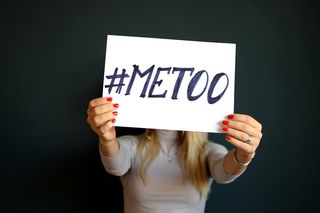Education
Lessons Learned from the Year of Really Bad Behavior
What have the countless examples of really bad behavior in 2017 taught us?
Posted December 14, 2017

If 2017 will be remembered for anything it might be remembered for countless examples of really bad behavior. For example, following the recent accusations of sexual harassment perpetrated by Harvey Weinstein, a remarkable number of very high-profile men in news, business, entertainment, politics, sports, and elsewhere have been accused of similar behavior and many of them have suddenly left, or been fired from, their lofty high-status positions in shame. It is staggering and dizzying to keep up with all of the examples (e.g., Bill O’Reilly, Matt Lauer, Al Franken, Kevin Spacey, Charlie Rose, Garrison Keillor, Mario Batali, Tavis Smiley) with each day bringing more dramatic examples to our attention.
Additionally, the year highlighted remarkably bad behavior by politicians and others in public service that featured not only sexual harassment and exploitation but amazing examples of callousness, discrimination, corruption, and conflicts of interests on grand and egregious scales. It seems that the gloves are off when it comes to ethics, civility, working for the common good and public interest, and reasonable and expected decorum. And who would have thought that white supremacy would make such a forceful comeback in so many areas and that a highly competitive candidate for the U.S. Senate with many credible accusations of pedophile behavior would have gathered so much devoted support and nearly won his special election?
Research on observational learning teaches us that people will observe and then repeat the behavior of models and especially those models who are high status and reinforced for their behavior. So, one might worry that all of these examples of awful behavior that are discriminatory, harassing, uncivil, unethical, often illegal, selfish, and inappropriate might result in more of the same kind of behavior committed by passive observers. In doing so, the new normal might be that really bad behavior is accepted and even expected.
However, there may be hope in what I call reverse observational learning. Basically, we learn how not to behave by watching others, too. For example, now that sexual harassment has taken center stage to the point where it not only dominates daily press reports, but brave victims who have come forward with their stories have been selected as Time magazine’s “person of the year,” hopefully those who are at risk for egregious predatory behavior will now observe how not to act with others. A spotlight has been shown on the pervasive and long-standing problem of sexual harassment and abuse in the workplace and the consequences to both victims and perpetrators provide an important learning experience for others. Reset, Ellen Pao's compelling and best-selling book on sexual harassment and discriminatory behavior at the highest levels of Silicon Valley venture capital companies, released in September, provides a chilling lesson for all.
Another important lesson this year might be that whatever was done in the darkness will one day come to light. Ethical behavior is rewarded with this knowledge in mind in that those who have behaved poorly in the past may need to constantly look over their shoulder now and in the future. And so, being ethical and treating others with respect and kindness is not only rewarding in itself but helps one sleep better at night and live in peace too.
Hopefully, we can learn how not to behave in 2018 after witnessing the brave disclosures of an ever-increasing number of women. These revelations provide hope that these behaviors will decrease in the future which may provide a silver lining in what has been an amazing year.
So, what do you think?
Copyright 2017, Thomas G. Plante, Ph.D., ABPP.
References
Pao, E. (2017). Reset: My Fight for Inclusion and Lasting Change. NY: Random House.


